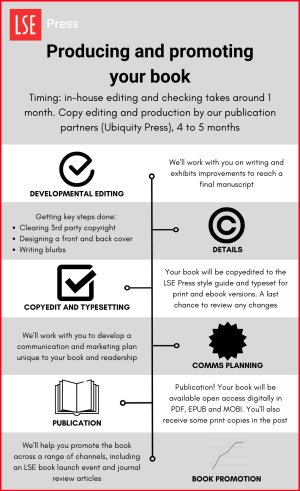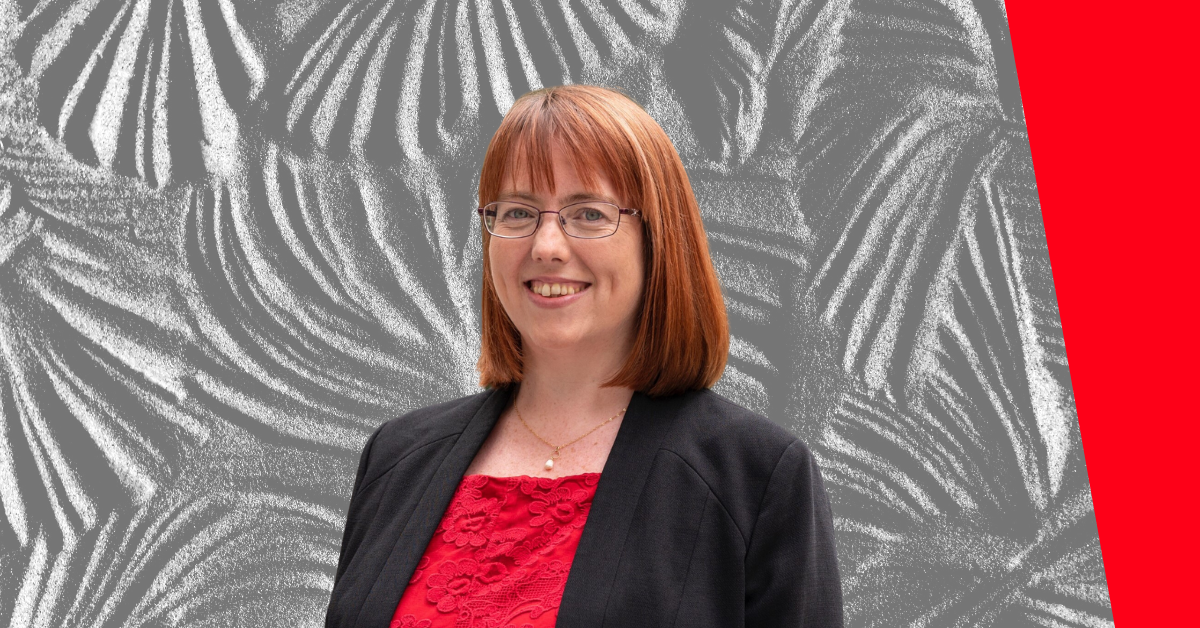LSE Press has opened a new call for book proposals for open access titles to publish in 2024 and beyond. Managing Editor Alice Park sets out what the Press is looking for, why you should be publishing open access, and how the Press works with authors to create successful and impactful publications.
LSE Press publishes high-quality social science research, and produces innovative, digital-first books and journals aimed at academic, student and policymaker audiences. We are planning a major expansion of our publishing list over the next three years.
Why publish open access with LSE Press
LSE Press is part of a wider movement of innovation in open access publishing. In 2021, UK Research and Innovation (UKRI) announced its new policy for Open Access. From January 2024, all research monographs, book chapters and edited collections from research that it helps to fund will need to be made open access within 12 months of publication. While we don’t yet know the policy for the next REF assessment, it is clear that the tide flowing towards an open access requirement for taxpayer-funded work is very strong – as it is also in the EU and the United States under President Biden.
Globally, open access has the potential to transform our access to research and to learning. It opens up our publications to the widest possible readership, reaching way beyond academics and students to policymakers, officials, business executives, NGOs and interested practitioners – ensuring that the highest-quality scholarship is available to everyone, whether or not they have access to specialist libraries. Providing open access to the best quality of evidence and analysis from trusted sources is a key contribution to tackling disinformation.
It also makes a huge contribution to ‘levelling up’ universities, academics and students in hundreds and thousands of non-elite and global south universities. As the authors of our ground-breaking macroeconomics textbook, Filipe Campante, Federico Sturzenegger and Andrés Velasco, put it:
In the global north, of course some elite universities can guarantee their students free library access to key texts (although often in restrictive ways or only for short periods). Yet there are also thousands of universities where this does not apply, and professors must restrict course reading to one textbook. In economics this book now often has to be purchased (or even just rented now) at high cost. Open access textbooks resolve many of these issues, because everyone in class can download it for free and have full access.
This is the model we adopt for all our publications: all our books and journals are fully, permanently open access from day one of publication, with no need to sign in or register your details. Open Access for us means no-fuss, one-click access from any smartphone, tablet or PC, anywhere in the world.
What are we looking for?
In this call, we are inviting proposals across the social sciences, including economics, sociology, political science, public policy, anthropology and international relations, plus law, international history, economic history, social history and social and moral philosophy, reflecting LSE’s range of departments. Our sphere of interests is necessarily broad, and without hard edges and we are always interested in proposals that bridge disciplinary boundaries.
In terms of the types of books we are looking for, proposals can be:
- Research monographs: in-depth explorations of a single subject, including books based on PhD research and post doctorial projects; or integrated research projects that cannot easily be covered in a set of disconnected papers. Over the next year we are publishing an increasing number of research monographs in social and public policy, media and communications, and political science.
- Intermediate texts that cover new or in-depth research areas, in ways accessible both for academics and for substantial other groups, such as advanced undergraduate and graduate students, policymakers, business executives, media professionals and market actors.
- Edited collections, especially on new research topics where innovative approaches may struggle to get into journals; or surveys of complex fields where multi-case, multi-perspective or multi-disciplinary work is valuable.
- Textbooks, designed for courses and teaching. Digital textbooks can ensure that everyone in a class has a personal copy of the same book, and we can provide additional teaching and lecture slide materials via our Zenodo site, all permanently free.
- New book series, especially in areas where the opportunity to reach a broad or global audience is most valuable.
- Impact books addressing a single policy issue for a public, practitioner and academic audience.
We strongly believe that research and teaching resources should not only be free to read but should also help to create greater equity in academic research. In line with LSE’s 2030 strategy, we are therefore particularly keen to encourage proposals that increase diversity and inclusion in academic publishing, and research that challenges systemic inequalities. Our aim is to attract a diverse range of authors, whether established academics or earlier in their career.
Within LSE we are committed to funding and publishing high-quality publications from across the School, and we are also open to book proposals from academics not affiliated with LSE. We will support authors (from LSE and outside the School) to access funding from UKRI, their university and department, and appropriate grant funders. We are also committed to supporting worthwhile publications where funding is not available.
What next? The publishing process
LSE Press is headed by editor-in-chief, Professor Patrick Dunleavy, and run by a team based in LSE Library. If you’re interested in working with us, simply get in touch by sending us a proposal (or an earlier idea). We can offer advice on developing it into a fully formed book proposal. Once a well-developed proposal is submitted, getting it accepted for publication will take two to three months, as all our projects go through a rigorous peer review process, with final approval resting with our Editorial Board. But we’re available to guide you through every step of the way, and to work with you develop your manuscript, meet reviewers’ comments and produce a book that has real impact.


Feature image by Pontus Wellgraf on Unsplash





